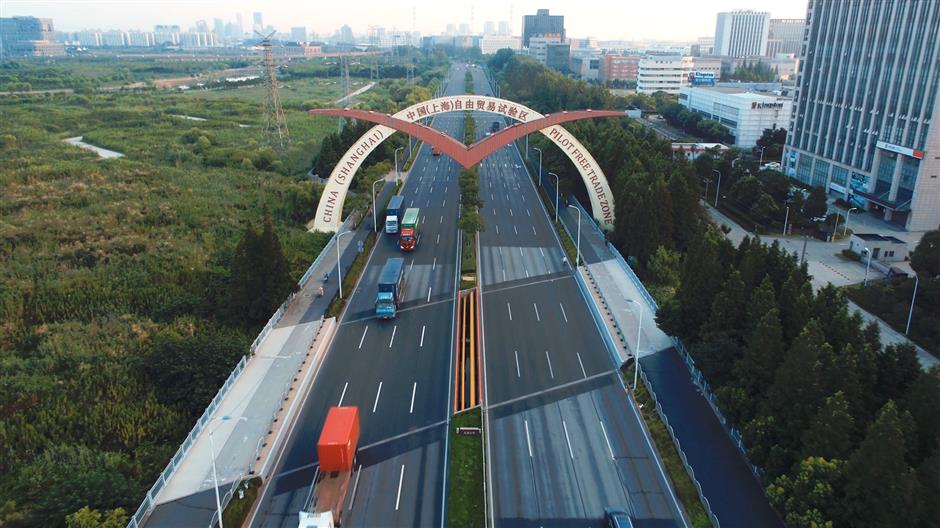Hongqiao set to become a business and trading hub for Yangtze Delta integration

China (Shanghai) Pilot Free Trade Zone
Shanghai’s Hongqiao area will be transformed into an “international central business district and trading center” to serve the national strategy of "integrated development of the Yangtze River Delta Region."
The other areas in the strategy are the new section of the China (Shanghai) Pilot Free Trade Zone and an “ecological green development demonstration zone” in Wujiang in neighboring Jiangsu Province, Jiashan in Zhejiang Province and the Qingpu District in Shanghai.
“Integration and high quality are the keywords for Shanghai, which will play a lead role in the Yangtze River Delta integration,” Shanghai Mayor Ying Yong said at a press conference of the State Council Information Office in Beijing on Tuesday.
The Yangtze River Delta region covers Shanghai and the provinces of Jiangsu, Zhejiang and Anhui. In November 2018, the integration and coordinated development of the area were declared a national strategy. It was announced by President Xi Jinping at the opening of the first China International Import Expo in Shanghai.
The city will take the annual import expo as an opportunity to develop the “Hongqiao International Open-up Hub,” Ying said. It will become a global central business district as well as China’s trading center.
A Hongqiao bonded exhibition and trading center will be set up to attract quality products and services from across the world for the Chinese market.
Shanghai will become a distributing center for the import and export of global merchandise with a strong influence in the Asia Pacific region, the mayor said.
As for the expansion of the free trade zone, Ying said the new area will focus on the world’s most competitive and influential special economic function zone.
General plans for the expansion has been completed and will be officially announced by the central government, he said.
The new zone will mainly explore the convenience and freedom of investment and trade. Innovation and breakthrough will be the key to implement more open policies and institutions.
It will mainly focus on the convenience of investment and business, free entry and exit of cargo, highly open transportation, free employment and swift information. More competitive tax policies will also be implemented, Ying said.
Since its establishment in September 2013, the free trade zone has explored new paths and accumulated experience for deepening China’s reform and opening up. In the World Bank’s latest global assessment of business environments, China ranks 46, up from the previous 78th place, out of 190 countries and regions.
The zone has attracted over 60,000 new companies and contributes a quarter of the city’s GDP and tax revenue. It is home to 45 percent of multinational conglomerates’ regional headquarters and foreign research and development centers in the city.
It has generated over 120 institutional innovations that can be replicated throughout the country, according to the city government. After Shanghai, 11 more pilot free trade zones were established in China.
The Yangtze River Delta is one of the most dynamic, open and innovative economic powerhouses of the country.
Shanghai has joined its neighboring provinces to establish a regional collaboration office and drawing up a three-year action plan.
As part of the plan, the demonstration zone for integrated green development of the region aims to create good examples of eco-friendly integration, innovate in institutions and strengthen joint innovation in reform measures, Ying said.
The city’s Qingpu District has announced a new round of infrastructure and service construction plans for 128 major projects worth 145.8 billion yuan (US$ 21.2 billion).
The joint efforts for the integration have shown initial effects, the mayor said. Over 50,000 patients in the Yangtze delta, for instance, have benefited from the policy to cover medical insurance to hospitals in cities across the delta, he added.















